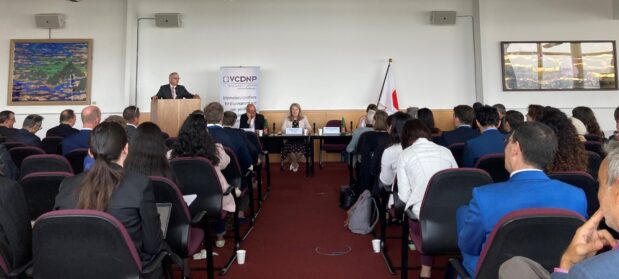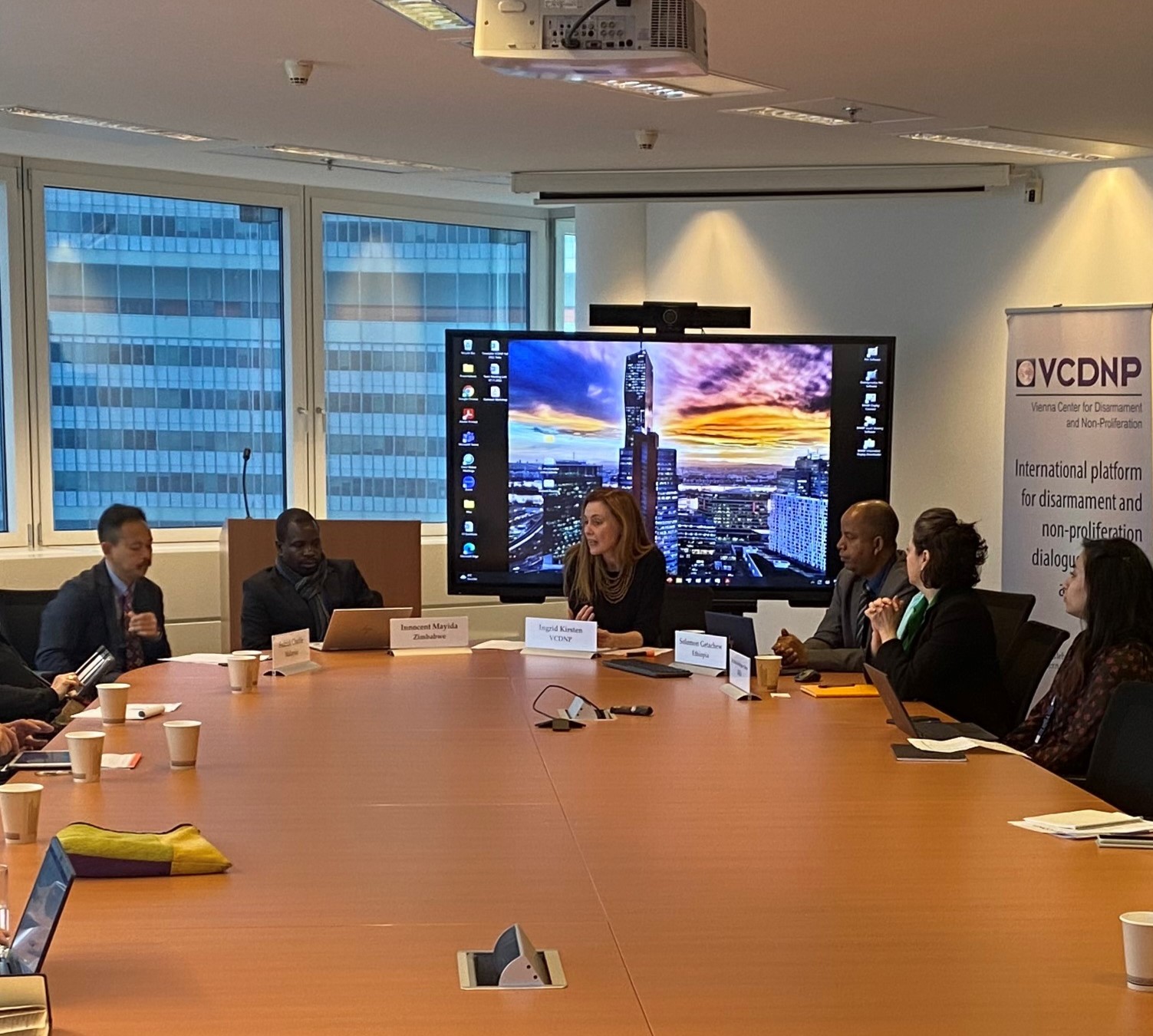
In 2003, the International Atomic Energy Agency (IAEA) reported for the first time about the previously undeclared nuclear activities taking place in the Islamic Republic of Iran. This began 20 years of diplomatic efforts to resolve concerns regarding Iran’s nuclear program. Such efforts, at different times, involved: the EU, France, Germany, the United Kingdom (together the E-3); China, Russia and the United States (or the E3+3); as well as the IAEA.
On 13 June 2023, the VCDNP held a seminar with eminent experts who had personal experience negotiating with Iran. Speakers included:

During the seminar, the experts discussed lessons learned from nuclear negotiations with Iran and how those lessons could be applied in the future.
Seizing the Moment. Speakers noted that Iran and its interlocutors—the United States in particular—have rarely been on the “same wavelength”. Often, when Iran was open to negotiations, the United States was not, and vice versa. Therefore, they emphasised the importance of recognising opportunities and acting with a sense of urgency when political conditions are favourable to negotiations. Speakers also advised patience through delicate nuclear negotiations, as they often take years depending on domestic and international political conditions of the parties involved.
Balance of pressure and incentives. Often thought of as “sticks and carrots”, speakers noted the importance of using both incentives and disincentives to bring parties to the negotiating table and reach agreement. For example, many attributed Iran’s willingness to engage in serious negotiations leading to the JCPOA to the effect of economic sanctions imposed by the United States, EU, and others. However, it was argued that pressure and sanctions alone would not have been enough and incentives, such as economic cooperation and preservation of Iran’s enrichment capabilities, albeit under limits, were also necessary to conclude the deal.
Compartmentalisation. The speakers discussed how compartmentalising important issues and limiting the scope of negotiations is often necessary. Focusing on the nuclear programme and not including missiles and other issues, for example, was among key factors of successful negotiation of the JCPOA. Similarly, speakers cautioned against making maximalist demands during negotiations, as these can be unrealistic and hamper progress towards a resolution.
“Linguistic Engineering”. Speakers highlighted that careful and precise formulations in agreements or joint statements were particularly important. On the one hand, negotiations can be aided by some strategic ambiguity, allowing the document to be read from different perspectives without comprising its meaning. On the other hand, such ambiguity can cause problems for implementation. Speakers emphasised the focus on technical details and common understanding of technical terminology for effective implementation of an agreement.

Setting a Precedent. Reflecting on two decades of nuclear negotiations with Iran, the speakers discussed the importance of setting a positive precedent. Concessions made during negotiations may have unintended consequences during implementation, though this may be unavoidable in order to reach agreement. JCPOA negotiators were willing to accept less than complete clarification about the military dimensions of Iran’s past nuclear activities to conclude the deal, focusing on the future over the past. Later, when more documents concerning Iran’s past activities were revealed, the JCPOA and its negotiators were criticised for “sweeping under the rug” the issue of possible military dimensions. However, one of the speakers emphasised that the IAEA Director General’s December 2015 report, which was necessary for JCPOA implementation, did not mean that the Agency had permanently closed the file on Iran’s past nuclear activities. The IAEA retains the right and obligation to seek clarification from Iran if and when new information comes to its attention.
Unity of Purpose. The more parties participate in negotiations, the higher the risk that divergent interests of different parties could hamper progress. As such, speakers argued that the unity of purpose among the E3+3, as well as between the E3+3 and Iran, was essential to the successful negotiation of the JCPOA. For a time, all parties involved were able to isolate the nuclear issue from other international and domestic factors and focus on a solution that would be acceptable to all. The speakers also noted the importance of maintaining political will at the highest levels and the value of intermediaries during difficult negotiations. The roles of the European Union and the government of Oman were lauded in this regard.
The VCDNP extends its thanks to the Permanent Mission of Japan to the International Organizations in Vienna for providing its conference room for this event.



